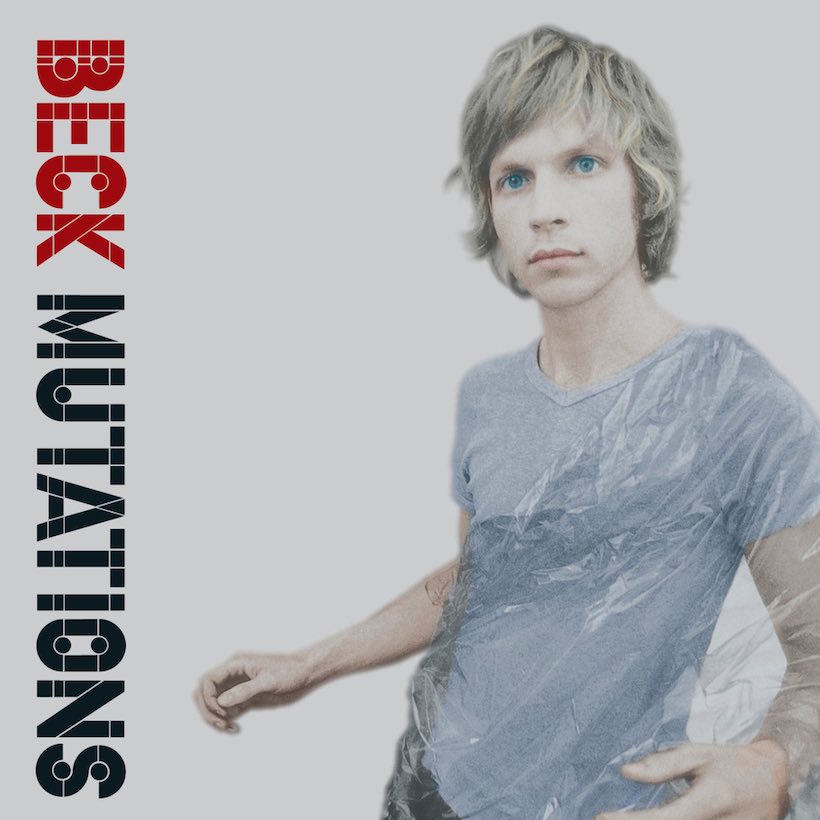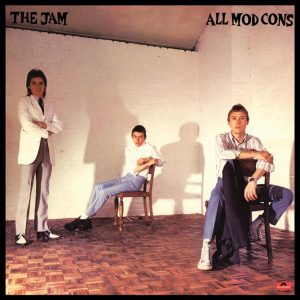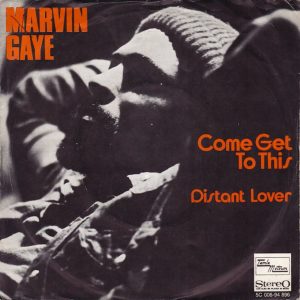In the award-winning afterglow of Odelay, Beck Hansen travelled the world, with adventures in the 1997-98 season that took him from the cover of Rolling Stone to the Pyramid Stage at the Glastonbury Festival. Then it was time for another sonic shift that manifested itself in Mutations.
The reception to 1996’s Odelay had been passionate, both critically and commercially. In the UK, he was feted with BRIT and NME Awards; in the US, five MTV Video Music Awards came his way in September 1997. That event was one of many high-profile performance settings that also included the 1997 Mount Fuji Rock Festival near Tokyo and the H.O.R.D.E. Festival, in which he moved across America with Neil Young & Crazy Horse, Morphine, Primus and others.
Read about Beck’s complete catalog in uDiscover Music’s Behind The Albums series.
Beck was an increasing influence on TV and cinema screens, too. That year also had him as a featured guest on Saturday Night Live and performing with Willie Nelson on Jay Leno’s Tonight Show. He ventured into film work: the new song “Feather In Your Cap” appeared alongside music by Sonic Youth, Flaming Lips et al on DGC’s soundtrack of SubUrbia, with a script by Eric Bogosian and adapted from his eponymous play. Then came “Deadweight,” included on the score album of A Life Less Ordinary and nominated for Best Song from a Movie at the 1998 MTV Movie Awards.
A new production collaborator
As Odelay rolled over towards a US double platinum circulation, it was time to get back on record, with a new production collaborator. Beck now teamed with Nigel Godrich, the British producer who had come to the fore with his brilliant coordination of the talents of Oxford, England tastemakers Radiohead. Far from any extended studio contemplation, they recorded Mutations in two weeks.
Working at Ocean Way, the Hollywood studio that proudly declares sales from records made there at one billion units, Beck, Godrich and a crack team of musicians started recording on March 19, 1998 and wrapped on April 3. What emerged was as confident, concise and cutting-edge as one had come to expect, no mere Odelay doppelganger but an even deeper, joyfully melodious exploration of Beck’s individuality.
Immediately after completion and before release, he was on to new challenges that included the premiere of a performance art piece featuring his grandfather, Beck and Al Hansen: Playing With Matches, at the Santa Monica Museum of Art in California. On May 24, on his only UK date of the year, a remarkable triple bill combination saw Beck and John Martyn playing at the homecoming show, at Haigh Hall in Wigan, by the British modern rock champions of the time The Verve.
Beck’s own summer tour of North America began on June 1, on shows that featured the additional attractions of Sean Lennon and Elliott Smith. On a massive show in New Jersey, this writer had the privilege of seeing Beck, on a bill that also featured Ben Folds Five, playing a triumphant set opening for the all-conquering Dave Matthews Band.
An album of exotic instrumentation
When it was released, on November 3, 1998, Mutations unveiled arrangements by Beck’s father, David Campbell and exotic instrumentation including tamboura, sitar, and the cuica drum. There were also contributions from distinguished players who remain with Hansen to this day, such as keyboard player Roger Manning, bassist Justin Meldal-Johnsen, and drummer Joey Waronker.
The album went straight into the US chart at its No.13 peak, and was gold inside a month. Even if it didn’t go on to mirror the commercial achievements of Odelay, the record overflowed with evidence that Beck was now firmly established as one of the most innovative artists in the world. The following February, Mutations beat Fatboy Slim, Tori Amos, Moby, and Nine Inch Nails to the Grammy Award for Best Alternative Music Performance.
Listen to the best of Beck on Apple Music and Spotify.
Gone was the sample-heavy hip-hop veneer of his previous triumph, and critics were united in their admiration of Beck’s refusal to take the easy option of repeating himself. “A collection of psychedelic folk-rock and country waltzes that couldn’t have wandered much further from Odelay,” purred the Los Angeles Times in its year-end round-up. “Another fully formed creative facet of Beck we haven’t seen before.”
The NME, meanwhile, advised: “You’d better sit down. Mutations sees Beck replacing the spinning turntable with the acid-rock lightwheel, the concrete streets with the long and winding road, retreating further from glaring expectation into the complex little universe between those fluffy sideburns.
“‘Nobody’s Fault But My Own’ strings its nerves out across those Wichita telegraph poles; ‘Sing It Again‘ is ‘Norwegian Wood’ tinged with rabbit-skinning pedal steel, while the deceptively cheery honky-tonk of ‘O Maria’ casts Beck as saloon showgirl, playfully chucking grizzled cowboys under the chin.”
Beck’s prettiest record?
Rolling Stone’s Nathan Brackett observed the album’s distinctive juxtaposition of dark lyricism (“the night is useless and so are we,” declared ‘O Maria’) and attractive melodies. “The twenty-eight-year-old Beck Hansen’s new album…brims with death, decay and decrepitude,” he wrote. “But in its own peculiar way, it’s also his prettiest record to date.
“On Mutations – recorded in two weeks last spring – Beck stops talking down to his tuneful side. Compared with the funk collage of 1996’s Odelay or the raw anti-folk of 1994’s One Foot in the Grave, this is an album of comfort songs.”
We’ll conclude this entry with David Browne’s appreciation in Entertainment Weekly. “Mutations fulfills Beck’s need to chill out, take things down a notch, and avoid pigeonholing as the white-rap geek with the weird suits,” he said. “To say those goals are admirable is an understatement.”
Mutations can be bought here.




